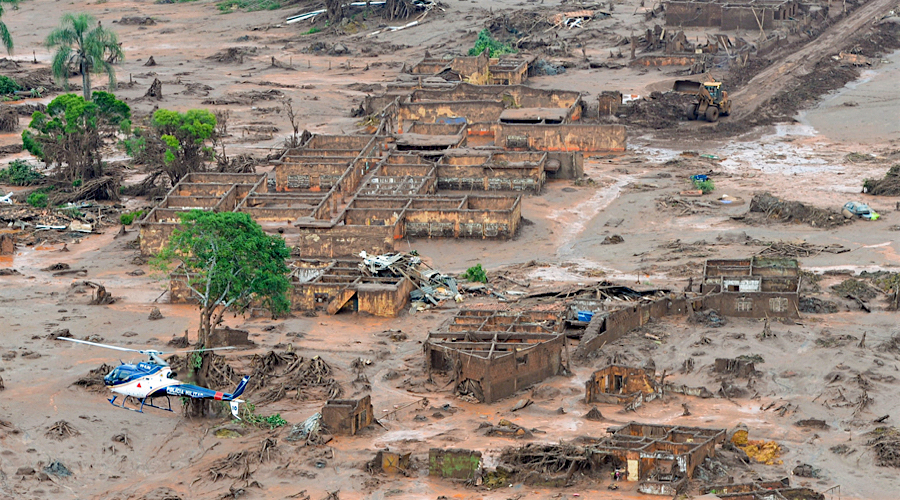
Samarco’s operations were suspended following the failure of its Fundão dam in November 2015.
The dam’s burst released 39.2 million cubic meters of tailings waste in the Rio Doce Basin, killing 19 people. It became Brazil’s worst ever environmental disaster.
The noteholders behind the case allege their attempts to restructure their debt with Samarco have so far failed.
Brazilian federal prosecutors believe that both BHP and Vale failed to take actions that could have prevented the disaster. But the companies have repeatedly said they were not responsible for the dam’s collapse, adding that they complied with Brazilian law and that safety was and has always been a key concern.
Samarco, which was once the world’s second-largest iron-ore pellet operation, was shuttered for five years. During that time, BHP and Vale focused on reparations, compensation and clean-up efforts.
They also faced several lawsuits and site inspections until the miner was ready to safely reopen Mariana Complex in December last year.
The miner said at the time that negotiations to complete its $3.8 billion debt restructuring were ongoing.
The noteholders behind the case allege their attempts to restructure their debt with Samarco have so far failed. According to The Sydney Morning Herald, the company has refused to provide financial records for them to assess their ability to repay the debt.
“It is notable that good corporate governance appears to be a priority for both BHP and Vale, and it is difficult to see how directing Samarco to ignore its creditors could be consistent with those goals,” Davis Polk & Wardwell partner Timothy Graulich said in the letter quoted by the newspaper.
Tainted image
Vale, the world’s biggest producer of iron ore, suffered a second deadly dam breach at its Córrego do Feijão mine, also in Minas Gerais, in January 2019. That accident claimed the lives of 270 people and has led to the creation of a new international standard for tailings dams in an effort to prevent another deadly failure.
The Brazilian miner has been dismantling the riskiest types of tailing dams and shifting towards new methods of storing waste that does not involve the use of water, such as dry stacking.
The Rio de Janeiro-based company has poured billions into compensation for those impacted by both dam accidents and for remediation works for the damage caused.
It is also part of the Renova Foundation, created with BHP for the reparation of the damages caused by the 2015 disaster. Brazilian prosecutors say the organization has not delivered on any of its promises.




